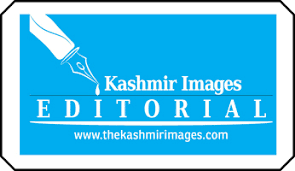Jammu and Kashmir’s administration has taken a decisive step to safeguard its vital water resources. Chief Secretary’s directive for compulsory geo-tagging of all water bodies under the Jal Shakti Abhiyan: Catch the Rain (JSA: CTR) campaign marks a turning point. Reviewed in a high-level meeting, the initiative demands urgent coordination among the Jal Shakti, Forest, and Rural Development Departments to map water bodies in forest and non-forest areas within a month, before snowfall blankets the higher reaches. Far from a bureaucratic exercise, this is a cornerstone for robust conservation strategies to combat climate change and ensure water security for future generations.
CTR campaign, now pivoting to community-driven implementation, reflects a commitment to holistic water management. District water conservation plans for all 20 districts, uploaded on the JSA portal, provide a scientific framework for sustainable resource use. Progress in districts like Doda, Ganderbal, Jammu, Bandipora and Ramban, alongside post-monsoon reports from central nodal officers, signals tangible advancements. The campaign focuses on five key interventions: water conservation and rainwater harvesting, renovation of traditional water bodies, reuse and recharge structures, watershed development and intensive afforestation. By leveraging funds from MGNREGS and Finance Commission Grants, it ensures inter-sectoral convergence under the principle of “Catch the rain, where it falls, when it falls.”
Kashmir Valley’s water bodies – lakes like Dal, Wular, Manasbal, and Anchar, rivers such as the Jhelum, Lidder, and Sindh and glaciers of the Pir Panjal and Great Himalayas—are ecological and cultural lifelines. They sustain biodiversity, supporting species like the Hangul, deer, leopard, black bear and migratory birds, while driving tourism, a cornerstone of J&K’s economy. These water bodies irrigate paddy fields, orchards, and horticulture, employing millions and provide drinking water and hydropower in a valley dependent on natural reservoirs.
Yet, these treasures face existential threats. Pollution from untreated sewage, agricultural runoff and urban waste has turned lakes into eutrophic zones, with Dal Lake shrinking by over 50% in a century due to encroachment and siltation. Climate change worsens the crisis, erratic monsoons, prolonged droughts and accelerated glacial melt disrupt water cycles, causing summer floods and winter shortages. Unplanned urbanization, illegal constructions and deforestation in catchment areas exacerbate degradation, while over-extraction strains groundwater recharge. Traditional sources like springs and karezus (ancient underground channels) are drying up, pushing rural communities into water-stressed livelihoods. Without action, these challenges could trigger socio-economic disruptions, including migration and increased disaster vulnerability.
Geo-tagging is a game-changer. By mapping every pond, lake, river, wetland and spring with precise coordinates, authorities enable real-time monitoring and data-driven decisions. This facilitates targeted interventions-preventing encroachments via satellite surveillance, prioritizing renovations under JSA, and engaging communities for conservation. Geo-referencing supports predictive modelling of climate impacts and efficient resource allocation for afforestation and watershed projects, transforming plans into actionable intelligence for proactive conservation.
As J&K grapples with the dual imperatives of development and sustainability, this initiative must be executed with unwavering resolve. Departments must transcend silos, engaging local panchayats and NGOs to instil a sense of ownership among communities. The success of JSA: CTR hinges on this collective urgency—after all, water is not just a resource but the essence of life in this Himalayan paradise. By geo-tagging our water bodies today, we are not merely plotting points on a map; we are charting a course towards a secure, verdant future for generations to come. The time to act is now, lest the rains we fail to catch wash away our heritage tomorrow.

